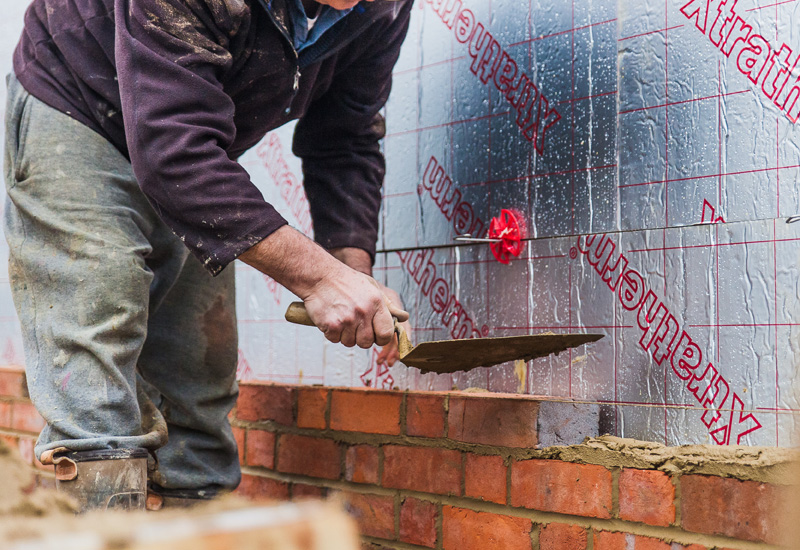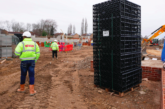
With a number of announcements on homes and housebuilding in the Chancellor’s Budget for 2017, here is some initial reaction from the sector.
Some of the key points from the Budget:
- A new target to deliver 300,000 new homes every year in England by the mid-2020s
- Abolition of Stamp Duty for first-time buyers for properties up to £300,000
- No Stamp Duty for first-time buyers on first £300,000 of purchases up to £500,000 for first-time buyers in London and other expensive areas
- HCA to become ‘Homes England’ with expanded remit
- Review into delays in bringing land forward for building
- £44bn funding to enable further housebuilding
Commenting on the measures announced in the Budget 2017, Brian Berry Chief Executive of the FMB said: “The Government has set itself a new target of building 300,000 new homes a year by the mid-2020s. And today the Chancellor has put small and medium-sized builders at the heart of ambitious plans to tackle the growing housing crisis. The Chancellor appears to be putting his money where his mouth is with the announcement of £44 billion of capital funding, loans and guarantees. In particular, a further £1.5 billion for the Home Building Fund to be targeted specifically at SME housebuilders can play a significant role in channelling crucial funding to this sector. A £630 million fund to prepare small sites for development and proposals to require councils to deliver more new housing supply from faster-to-build smaller sites will provide opportunities to boost small scale development.”
Henry Fordham, MD at Bellis Homes said: “We are pleased to see widespread reform and investment in the UK housing market. Although abolishing stamp duty for first time buyers is a positive step, it being limited to £300,000 means its impact is minimised in many areas where many young professionals are required to work and live, such as London and linked commuting areas.
“I feel the Chancellor should have committed to his consideration of a temporary stamp duty holiday. Such a measure would of ensured the most immediate catalyst across the market and country as a whole to the benefit of the economy.”
Steve Midgley, MD of Fairgrove Homes and Director of the East Midlands Chamber of Commerce commented: “Scrapping stamp duty for first-time buyers is excellent news, and will provide a much-needed boost to the market. But an extension of the government’s Help to Buy scheme beyond 2020 would also have been useful.
“The £44bn in government support to boost construction skills is also obviously hugely positive – providing it’s implemented where it’s needed – as is the review into delays in permitted developments. As one of the smaller house builders in the region, delays have a huge impact on our cash flow, so any improvement to the current system and processes would be beneficial.”
Spencer McCarthy, Chairman and CEO of Churchill Retirement Living, said: “After all the talk beforehand, today’s Budget is a huge disappointment, and sadly it’s all too predictable from Mr Hammond. The changes he’s outlined will make very little difference to our broken housing market, and he’s missed the opportunity to shake things up and do something really positive.
“The Government is still focusing far too narrowly on one end of the housing market. When will they realise that the only way to improve things is by looking at the full range of housing supply? Of course it’s important to support younger people, but Stamp Duty exemption for first time buyers is just an attempt to win votes and won’t do anything to fix the market’s wider problems. We also need to help more older people to downsize – this would spark a positive chain reaction across the whole housing market.
“We urgently need some form of Help to Buy-style equity loan for older people who may need to bridge the gap or free up equity when purchasing a new retirement property.”
On planning reforms intended to get the housing market moving, James Knight, Head of Residential at Arcadis, said: “The gap in numbers between planning permissions and housing starts is often down to additional red-tape and bureaucracy created in Section 106 agreements and pre-commencement conditions. The government needs to focus on reducing this burden. Equally, the problem with the abolition of stamp duty is that it could maintain and increase house prices – is this fixing the market?”
On the construction of new homes Bjorn Conway, CEO, ilke homes said: “ilke homes welcomes Philip Hammond’s commitment to invest £44bn in housing and to build 300,000 new homes a year by the mid-2020s. It is hugely important that councils and housing associations across the UK adopt innovative construction techniques in order to ensure these targets are met. While there is no ‘silver bullet’, the use of precision manufacturing processes will go a long way towards delivering affordable new homes quickly and at a low cost.”
On housing David Gray, Bid Development Director at AM Bid commented: “The Chancellor’s announcement of £1.5bn of new money for the Home Builders Fund will be welcome news for SME housebuilders looking to bid for construction contracts across the UK.
“Moreover, the commitment to provide at least £44bn capital funding, loans and guarantees to support the housing market over the next five years, should result in a marked increase in construction contract opportunities.”








